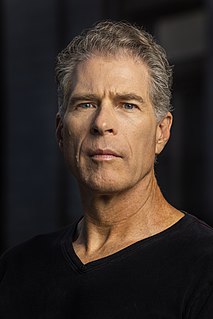A Quote by Daniel Kahneman
People who are cognitively busy are also more likely to make selfish choices, use sexist language, and make superficial judgments in social situations.
Related Quotes
There is a narrow class of uses of language where you intend to communicate. Communication refers to an effort to get people to understand what one means. And that, certainly, is one use of language and a social use of it. But I don't think it is the only social use of language. Nor are social uses the only uses of language.
The Constitution exists precisely so that opinions and judgments, including esthetic and moral judgments about art and literature, can be formed, tested, and expressed. What the Constitution says is that these judgments are for the individual to make, not for the Government to decree, even with the mandate or approval of a majority. Technology expands the capacity to choose; and it denies the potential of this revolution if we assume the Government is best positioned to make these choices for us.
I would be devastated if my son could not have music as part of his curriculum in school. It should not be a choice between culture and technical training - well-rounded students and graduates will make appropriate choices for their careers, but they must also be trained to make appropriate social choices.
Video has become much more social, and as a result, there are many opportunities to use video as a way to connect people, to give them opportunities to play and participate, to make things together and have a shared social experience. I think we are just at the beginning of really exploring what social video is and what we can make of it.
People who achieve great things are people who make choices. Far too many people today let life dictate their future instead of the other way around. Choices are hard - that's why so few actually make them. But as the saying goes - not to make a choice is to make a choice. When it comes to choices, The question is - what choices will you make today? The world doesn't care about your problems, or what's holding you back. They don't care about your past failures, or any other obstacles you face. Stop making excuses and start making choices.
I've seen the same thing emerge in the research around the interaction of sleeping and moving and eating: if you get a good night's sleep, you are significantly more likely to make the right choices about what you eat the next morning, you're more likely to work out, you're more likely to get a better night's sleep the next night.
People who expect to feel guilty tend to be more sympathetic, to put themselves into other people's shoes, to think about the consequences of their behaviour before acting, and to treasure their morals. As a result they are less prone to lie, cheat or behave immorally when they conduct a business deal or spot an opportunity to make money, studies suggest. They are also likely to make better employees because people who think less about the future results of their actions are more likely to be late, to steal or to be rude to clients.





































